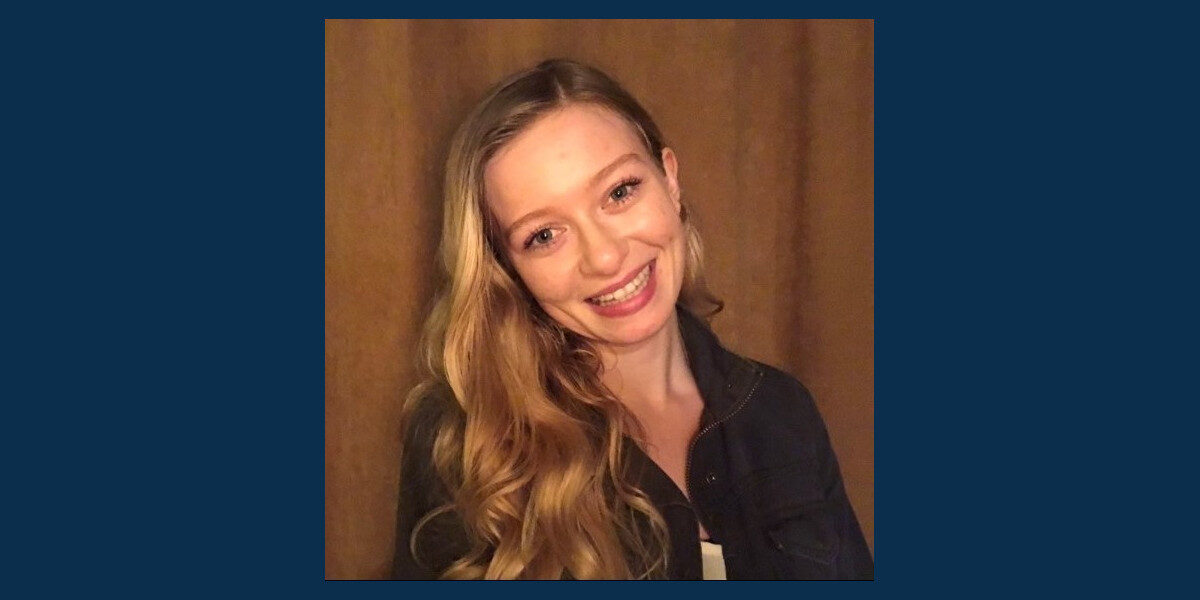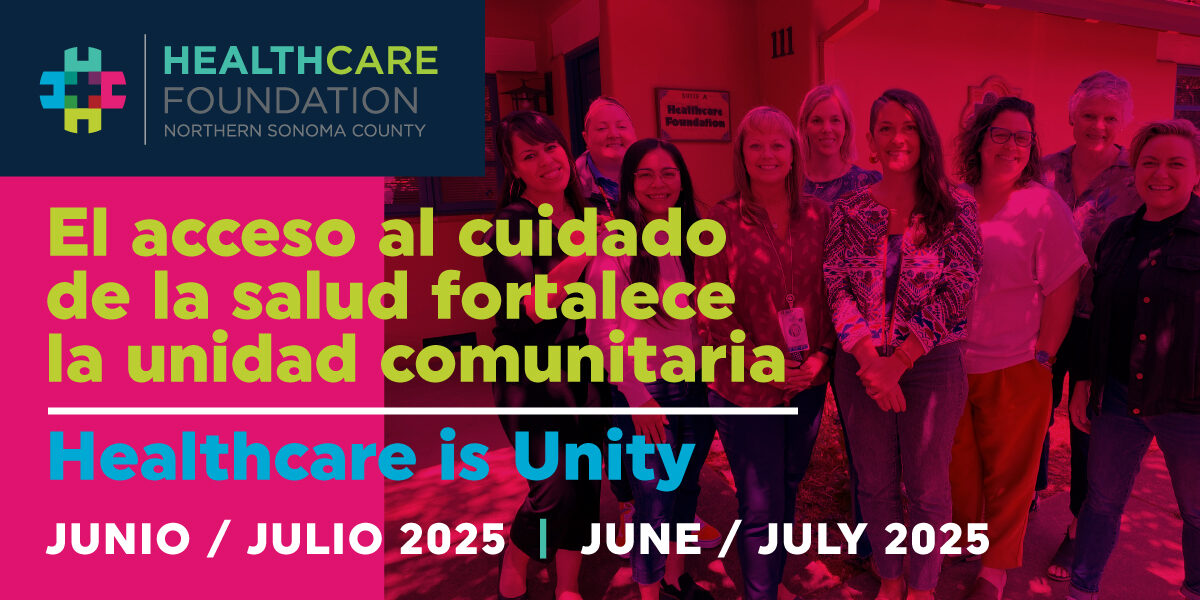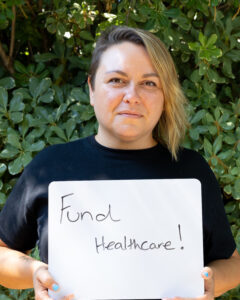

Spotlight on HOPE: A conversation with scholarship recipient Meghan O’Leary
3 min read. We recently spoke with SRJC HOPE student Meghan O'Leary about her experiences with the program.
Meghan O’Leary is a Sonoma County native and a first-generation college student in her final year at Santa Rosa Junior College (SRJC), where she is studying nursing with support from a HOPE scholarship. President of the student nursing association, in 2021 Meghan herself became an academic tutor for the HOPE program.
HOPE (Health Occupation Preparation Education), whose scholarships were underwritten in part this year by a grant from the Healthcare Foundation, is an exceptional program supporting local Latine, low-income, and first-generation students pursuing careers in the medical field.
HOPE is built on intervention strategies, support networks, and proven evidence-based models for student success to ensure participants persist and complete their certificate or degree or transfer to a four-year institution. The campus’s HOPE Center provides career and academic counseling, assistance with applying for scholarships and financial aid, a study center featuring staff support, workshops, career resources, college field trips, arranging of medical mentorships, and more.
“The HOPE Center has supported me through all of the tragedies and triumphs of coming to the junior college as a first-generation college student,” says Meghan, who first learned about HOPE when its original director, Jeannie Dulberg, visited her high school’s health occupation class. She has been with the HOPE program since her first days at the junior college.
“I’ve seen the program evolve over the years that I’ve been a part of it,” notes Meghan.
“What has been consistent throughout is the assignment of a case manager,” she explains. “That is somebody who is your support and guide as you navigate college. My case managers have helped me understand the different academic program requirements. They’ve also provided very serious emotional support when I’ve experienced things like the loss of a job during Covid. When I was struggling with basic needs they put me in contact with a program for food. When I needed help applying for a different job, they were there. They’ve taught me about financial literacy and how to apply for scholarships. And they keep me accountable for everything I need to get done.”
Meghan describes how becoming a tutor for other HOPE students was her own idea.
“After I completed my prerequisite courses for the nursing program, I wanted to offer assistance to other students,” she says. “I had used [SRJC’s] online NetTutor program but it just wasn’t sufficient for the level of courses that pre-nursing and other allied health majors take. I wanted to fix that. I offer weekly tutoring of anatomy, physiology, microbiology, and now I also tutor all of the courses that I’ve taken while in the nursing program. I’ve even recruited another tutor for microbiology, which is really nice, to see that grow.”
A similar spirit of service fuels Meghan’s pursuit of the nursing program. She says for that, too, she is indebted to the support she got from her HOPE case manager.
“I knew I wanted to be in the medical field since my junior year of high school,” she recalls. “I thought I was going to go for a degree in microbiology. I was feeling a little defeated, because I just didn’t feel like I was studying what I wanted to.”
Meghan went to her HOPE case manager for advice about what to do.
“I was confused about whether to go toward nursing or being a physician assistant. My case manager said, ‘Why don’t you go and shadow somebody in both of those realms?’”
She did just that, and the experience proved inspiring.
“I did a cold-call to a physician assistant and a nurse practitioner to see the difference between those two types of primary providers. Shadowing a nurse practitioner at a rural clinic, I watched her take a sample from a patient and look at it under the microscope, diagnose what they had, and then prescribe medications. I thought, this is exactly what I want to do.”
While still working toward her associate degree at SRJC, Meghan also enrolled in Sonoma State’s Bachelor of Science nursing program after which she hopes to gain experience in the critical care setting.
“This is all because of HOPE as well,” she notes. “They encouraged me to go on to get my master’s or doctorate after I get some experience in the critical care setting. So now I’m looking towards higher education, and it’s great.”
Meghan is currently eying both critical care and gerontology, and hopes to be able to stay in Sonoma County after her studies, despite the region’s rising cost of living. Among other things, she’s an amateur botanist and mycologist and expresses a great fondness for the natural environment she grew up in.
On the cusp of a bright career of service in the medical field, Meghan adds a final reflection on the pivotal help she has received from the staff at the HOPE Center.
“They fed me when I was hungry, they let me take a nap when I needed to, they’ve supported me while I’ve cried, and they’ve been there for my triumphs, too, like doing well in my prereqs and having a 4.0 in nursing school. Without the HOPE Center, I honestly don’t think I would be where I am today. I’m truly grateful for them.”

Related News + Stories
Invest in Our Community
Your support is vital to our collective vision of eliminating health inequities in northern Sonoma County.
Donate



